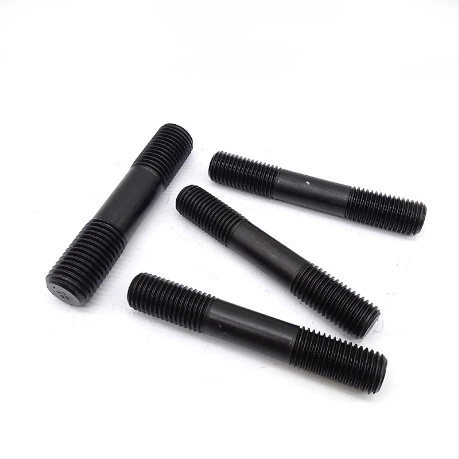

Self-Tapping Screws for Lintel Applications and Installation Techniques Guide
Des . 09, 2024 16:27 Back to list
Self-Tapping Screws for Lintel Applications and Installation Techniques Guide
Self-Tapping Screws for Lintels An Overview
When it comes to construction and structural engineering, the choice of fasteners plays a critical role in ensuring the integrity and durability of a building. One of the essential components often overlooked in structural assemblies, especially for windows, door frames, and other openings, is the lintel. Lintels are horizontal supports placed over openings to bear the weight of the structure above. Although the materials used for lintels can vary, their installation typically requires robust fastening solutions. Enter self-tapping screws—an efficient and reliable choice for anchoring lintels and significantly enhancing their performance.
What are Self-Tapping Screws?
Self-tapping screws are designed to create their own mating thread in the material they are driven into. This unique feature makes them highly versatile fasteners, suitable for various applications, including metal, wood, and plastic. Unlike traditional screws that require pre-drilled holes, self-tapping screws simplify the fastening process, saving time and labor costs. Their tip is sharp enough to penetrate the material, while the helical threads engage securely, providing a strong hold.
Benefits of Using Self-Tapping Screws for Lintels
1. Efficiency in Installation One of the primary advantages of self-tapping screws is the speed of installation. Contractors can install lintels quickly without the need for pre-drilling holes, which significantly reduces labor time on-site. This efficiency allows for faster project completion, essential in meeting tight deadlines.
2. Strong Connection Self-tapping screws provide a strong mechanical connection that is vital for lintel applications. They create a tight fit that can withstand the compressive and tensile forces exerted on the lintel by the weight of the structure above. The secure engagement of the screw thread within the base material ensures that the lintel remains firmly in place, even under stress.
self tapping screws for lintel

3. Versatility These screws come in various sizes and materials, making them suitable for different lintel types and construction materials. Whether dealing with steel lintels, wooden frames, or even concrete, self-tapping screws can be adapted to meet specific project requirements.
4. Corrosion Resistance When securing lintels in environments prone to moisture or corrosive elements, selecting self-tapping screws with corrosion-resistant coatings becomes crucial. Options such as galvanized or stainless steel screws provide added durability and longevity, ensuring that the fastening system remains reliable over time.
5. Ease of Removal In instances where modifications may be necessary, self-tapping screws allow for easier removal compared to traditional fasteners. This feature is particularly beneficial for renovations or repairs where existing lintels might need replacement or re-positioning.
Choosing the Right Self-Tapping Screw
Selecting the appropriate self-tapping screw for lintel applications depends on several factors, including the type of material being fastened, the environmental conditions, and the specific load requirements. Generally, it is advisable to consult engineering guidelines or a structural engineer to determine the safest and most effective screw specifications. - Thread type Different thread designs are suited for various materials—coarse threads are better for wood, whereas finer threads work well in metal. - Length The length of the screw must be sufficient to penetrate the base material securely while ensuring a firm hold on the lintel. - Head Type The screw head type (e.g., flat, round, hex) should accommodate the intended installation tools and provide a flush finish with the surface when necessary.
Conclusion
Utilizing self-tapping screws for lintels represents an ideal solution for ensuring the stability and integrity of structural openings in any construction project. Their ease of installation, strong connection capabilities, and adaptability to various materials make them a go-to choice for builders and contractors alike. As with any building component, selecting the right self-tapping screw and ensuring accurate installation can make a substantial difference in the performance and safety of the overall structure. As the construction industry continues to evolve, embracing innovative fastening solutions like self-tapping screws will play a vital role in enhancing building efficiency and reliability.
Latest news
-
Similarities and Differences Between Plain Washer and Spring Washer - Fastener Comparison Guide
NewsJun.10,2025
-
Effortless Installation Self-Drilling Window Screws - Fast, Secure, and Durable Fasteners
NewsJun.10,2025
-
Self Drilling Stucco Screws for Fast, Secure Installation Self Tapping & Self-Tapping Fasteners
NewsJun.10,2025
-
Premium Hot Dipped Galvanized Self Tapping Screws - Durable Corrosion Resistance
NewsJun.09,2025
-
Discover M12 Weld Stud Benefits & Applications Guide
NewsJun.09,2025
-
M25 Stainless Steel Washers High-Durability Fasteners for Corrosion Resistance
NewsJun.09,2025

